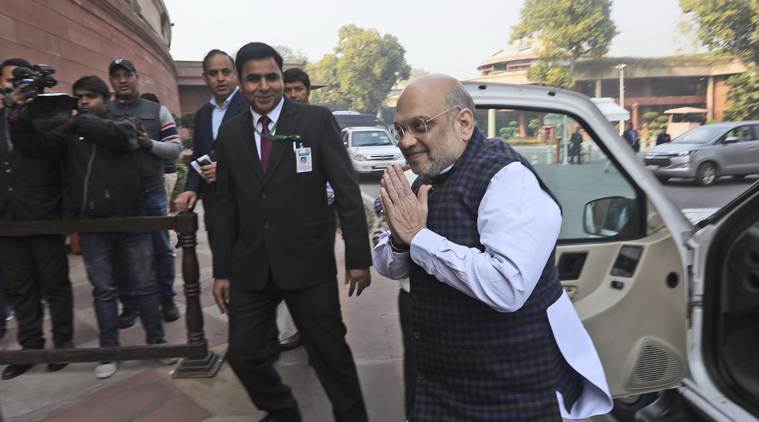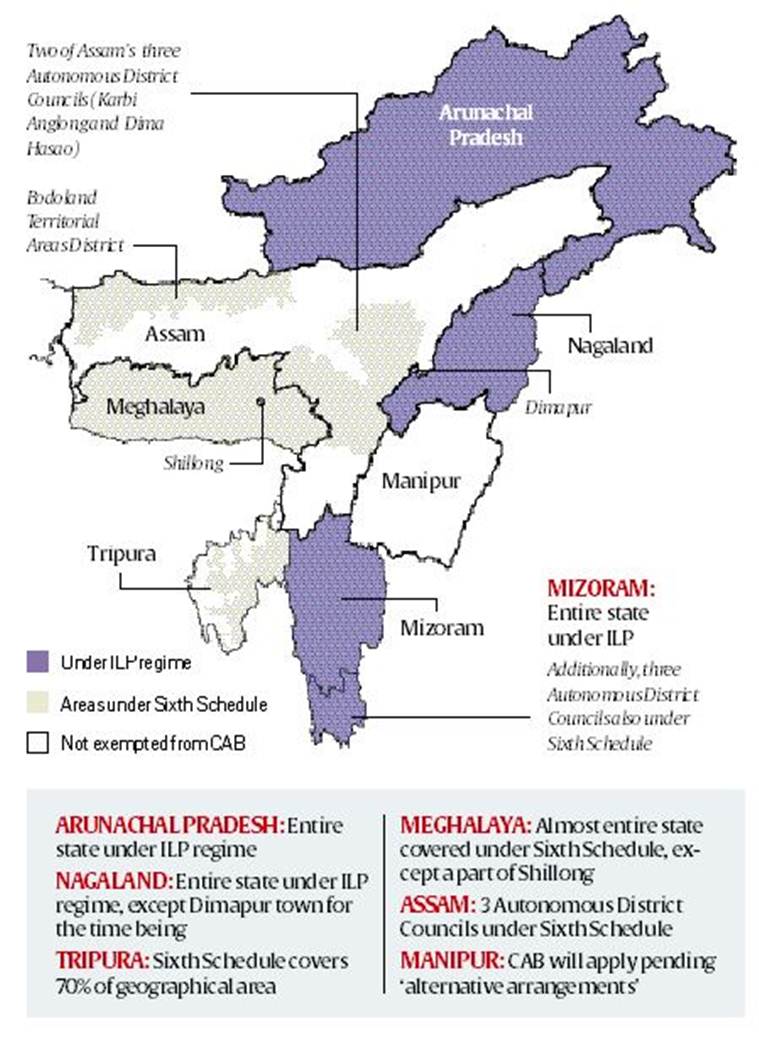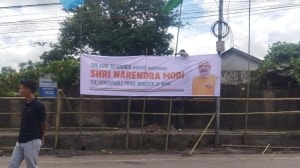
Cleared by the Cabinet last week, CAB, which eases the citizenship process for non-Muslim illegal immigrants, provides exemptions in case of the entire Northeast except Manipur. Shah had earlier held consultations with representatives of all states in the region to address their concerns that the Bill would lead to an influx of refugees and demographic changes. The Northeast states share international borders with Bangladesh, Nepal, Myanmar, Bhutan and China.

Story continues below this ad
CAB, which seeks to make citizenship easier for refugees from Pakistan, Bangladesh and Afghanistan escaping religious persecution (leaving out only Muslims), is listed for Monday’s business in the Lok Sabha. The Bill is expected to be taken up in the Rajya Sabha on December 11.
The Manipur CM led a team including Manipur civil society organisations and former CM and Congress leader Okram Ibobi Singh to meet Shah.
Explained | Where the Citizenship (Amendment) Bill does not apply
“The Union Home Minister assured us that an alternative arrangement would be made to protect the indigenous communities of Manipur. We had proposed one of two courses — re-establishment of the Entry and Exit Permit System which was in place will 1950, or extension of the ILP to Manipur. The Home Minister told us that if he finds it difficult to implement the Entry and Exit System, he will extend the ILP. We have complete faith that he will decide on the appropriate course to protect the people of Manipur,” Singh said.
Editorial | Citizenship Bill violates basic structure of Constitution, very foundation of the Republic
Story continues below this ad
Under the Entry and Exit Permit System, introduced by the erstwhile Manipur Kingdom, any non-Manipuri (even if a part of India) had to register at a ‘Foreigners’ Office’, acquire a special permit and pay a fee. The system continued even after Manipur had been assimiliated into Assam, and was finally repealed by the Assam Commissioner in 1950.
The ILP that is currently in place in Nagaland, Mizoram and Arunachal Pradesh requires non-locals to acquire special permit for entry. The system was first introduced by the British Raj to protect its commercial interests in the region, particularly in oil and tea production. Manipur was an independent kingdom at the time.
Also Read | Citizenship Amendment Bill skips mention of religious persecution
According to activists in Manipur who have been seeking an ILP for long, the state’s population grew at a rate of 12.80 per cent between 1941-51, jumping to 35.04 per cent in 1951-61 and 37.56 per cent in 1961-71 after the permit system was abolished.
Story continues below this ad
The first demand in Parliament for an ILP in Manipur was made as far back as 1980. In 2006, the demand resurfaced, and in 2012, took a violent turn with repeated general strikes and continued agitations. In June 2015, a 17-year-old died during a student protest for the ILP, leading to violence and curfew in Manipur.
An ILP activist, Lancha Ningthouja, said, “There is a serious danger of the indigenous Manipuri population being wiped out along with their culture, history and languages. If one of the two systems is implemented by the Home Minister, it will definitely be a start… Why should we let outsiders take over our land entirely? No other country does this.”

 Union Home Minister Amit Shah will introduce the legislation in the Parliament today. (AP Photo)
Union Home Minister Amit Shah will introduce the legislation in the Parliament today. (AP Photo)








